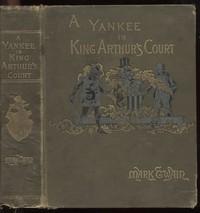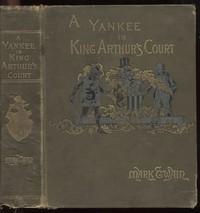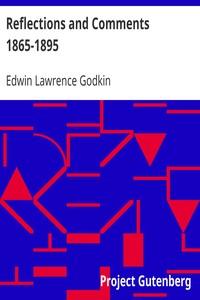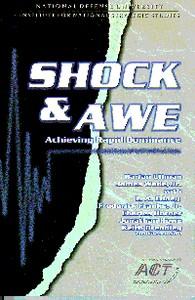Read this ebook for free! No credit card needed, absolutely nothing to pay.
Words: 73558 in 8 pages
This is an ebook sharing website. You can read the uploaded ebooks for free here. No credit cards needed, nothing to pay. If you want to own a digital copy of the ebook, or want to read offline with your favorite ebook-reader, then you can choose to buy and download the ebook.
PEACE CULTURE AND WAR THE COMPARATIVE MORALITY OF NATIONS THE "COMIC-PAPER" QUESTION MR. FROUDE AS A LECTURER MR. HORACE GREELEY THE MORALS AND MANNERS OF THE KITCHEN JOHN STUART MILL PANICS THE ODIUM PHILOLOGICUM PROFESSOR HUXLEY'S LECTURES CIRCUMSTANTIAL EVIDENCE TYNDALL AND THE THEOLOGIANS THE CHURCH AND SCIENCE THE CHURCH AND GOOD CONDUCT R?LE OF THE UNIVERSITIES IN POLITICS THE HOPKINS UNIVERSITY THE SOUTH AFTER THE WAR CHROMO-CIVILIZATION "THE SHORT-HAIRS" AND "THE SWALLOW-TAILS" JUDGES AND WITNESSES "THE DEBTOR CLASS" COMMENCEMENT ADMONITION "ORGANS" EVIDENCE ABOUT CHARACTER PHYSICAL FORCE IN POLITICS "COURT CIRCLES" LIVING IN EUROPE AND GOING TO IT CARLYLE'S POLITICAL INFLUENCE THE EVOLUTION OF THE SUMMER RESORT SUMMER REST THE SURVIVAL OF TYPES WILL WIMBLES
REFLECTIONS AND COMMENTS
PEACE
The horrors of war are just now making a deeper impression than ever on the popular mind, owing to the close contact with the battle-field and the hospital into which the railroad and the telegraph and the newspaper have brought the public of all civilized countries. Wars are fought out now, so to speak, under every man's and woman's eyes; and, what is perhaps of nearly as much importance, the growth of commerce and manufactures, and the increased complication of the social machine, render the smallest derangement of it anywhere a concern and trouble to all nations. The consequence is that the desire for peace was never so deep as it is now, and the eagerness of all good people to find out some other means of deciding international disputes than mutual killing never so intense.
And yet the unconsciousness of the true nature and difficulties of the problem they are trying to solve, which is displayed by most of those who make the advocacy of peace their special work, is very discouraging. We are far from believing that the incessant and direct appeals to the public conscience on the subject of war are not likely in the long run to produce some effect; but it is very difficult to resist the conclusion that the efforts of the special advocates of peace have thus far helped to spread and strengthen the impression that there is no adequate substitute for the sword as an arbiter between nations, or, in other words, to harden the popular heart on the subject of military slaughter. It is certain that, during the last fifty years, the period in which peace societies have been at work, armies have been growing steadily larger, the means of destruction have been multiplying, and wars have been as frequent and as bloody as ever before; and, what is worse, the popular heart goes into war as it has never done in past ages.
The great reason why the more earnest enemies of war have not made more progress toward doing away with it, has been that, from the very outset of their labors down to the present moment, they have devoted themselves mainly to depicting its horrors and to denouncing its cruelty. In other words, they almost invariably approach it from a side with which nations actually engaged in it are just as familiar as anybody, but which has for the moment assumed in their eyes a secondary importance. The peace advocates are constantly talking of the guilt of killing, while the combatants only think, and will only think, of the nobleness of dying. To the peace advocates the soldier is always a man going to slaughter his neighbors; to his countrymen he is a man going to lose his life for their sake--that is, to perform the loftiest act of devotion of which a human being is capable. It is not wonderful, then, that the usual effect of appeals for peace made by neutrals is to produce mingled exasperation and amusement among the belligerents. To the great majority of Europeans our civil war was a shocking spectacle, and the persistence of the North in carrying it on a sad proof of ferocity and lust of dominion. To the great majority of those engaged in carrying it on the struggle was a holy one, in which it was a blessing to perish. Probably nothing ever fell more cruelly on human ears than the taunts and execrations which American wives and mothers heard from the other side of the ocean, heaped on the husbands and sons whom they had sent to the battle-field, never thinking at all of their slaying, but thinking solely of their being slain; and very glad indeed that, if death had to come, it should come in such a cause. If we go either to France or Germany to-day, we shall find a precisely similar state of feeling. If the accounts we hear be true--and we know of no reason to doubt them--there is no more question in the German and French mind that French and German soldiers are doing their highest duty in fighting, than there was in the most patriotic Northern or Southern home during our war; and we may guess, therefore, how a German or French mother, the light of whose life had gone out at Gravelotte or Orleans, and who hugs her sorrow as a great gift of God, would receive an address from New York on the general wickedness and folly of her sacrifice.
The fact is--and it is one of the most suggestive facts we know of--that the very growth of the public conscience has helped to make peace somewhat more difficult, war vastly more terrible. When war was the game of kings and soldiers, the nations went into it in a half-hearted way, and sincerely loathed it; now that war is literally an outburst of popular feeling, the friend of peace finds most of his logic powerless. There is little use in reasoning with a man who is ready to die on the folly or wickedness of dying. When a nation has worked itself up to the point of believing that there are objects within its reach for which life were well surrendered, it has reached a region in which the wise saws and modern instances of the philosopher or lawyer cannot touch it, and in which pictures of the misery of war only help to make the martyr's crown seem more glorious.
Therefore, we doubt whether the work of peace is well done by those who, amidst the heat and fury of actual hostilities, dwell upon the folly and cruelty of them, and appeal to the combatants to stop fighting, on the ground that fighting involves suffering and loss of life, and the destruction of property. The principal effect of this on "the average man" has been to produce the impression that the friends of peace are ninnies, and to make him smile over the earnestness with which everybody looks on his own wars as holy and inevitable, and his neighbors' wars as unnecessary and wicked. Any practical movement to put an end to war must begin far away from the battle-field and its horrors. It must take up and deal with the various influences, social and political, which create and perpetuate the state of mind which makes people ready to fight. Preaching up peace and preaching down war generally are very like general homilies in praise of virtue and denunciation of vice. Everybody agrees with them, but nobody is ever ready to admit their applicability to his particular case. War is, in our time, essentially the people's work. Its guilt is theirs, as its losses and sufferings are theirs. All attempts to saddle emperors, kings, and nobles with the responsibility of it may as well be given up from this time forward.
Now, what are the agencies which operate in producing the frame of mind which makes people ready to go to war on small provocation? It is at these the friends of peace must strike, in time of peace, and not after the cannon has begun to roar and the country has gone mad with patriotism and rage. They are, first of all, the preaching in the press and elsewhere of the false and pernicious doctrine that one nation gains by another's losses, and can be made happy by its misery; that the United States, for instance, profits in the long run by the prostration of French, German, or English industry. One of the first duties of a peace society is to watch this doctrine, and hunt it down wherever they see it, as one of the great promoters of the pride and hardness of heart which make war seem a trifling evil. America can no more gain by French or German ruin than New York can gain by that of Massachusetts. Secondly, there is the mediaeval doctrine that the less commercial intercourse nations carry on with each other the better for both, and that markets won or kept by force are means of gain. There has probably been no more fruitful source of war than this. It has for three centuries desolated the world, and all peace associations should fix on it, wherever they encounter it, the mark of the beast. Thirdly, there is the tendency of the press, which is now the great moulder of public opinion, to take what we may call the pugilist's view of international controversies. The habit of taunting foreign disputants, sneering at the cowardice or weakness of the one who shows any sign of reluctance in drawing the sword, and counting up the possible profit to its own country of one or other being well thrashed, in which it so frequently indulges, has inevitably the effect not only of goading the disputants into hostilities, but of connecting in the popular mind at home the idea of unreadiness or unwillingness to fight with baseness and meanness and material disadvantage. Fourthly, there is the practice, to which the press, orators, and poets in every civilized country steadily adhere, of maintaining, as far as their influence goes, the same notions about national honor which once prevailed about individual "honor"--that is, the notion that it is discreditable to acknowledge one's self in the wrong, and always more becoming to fight than apologize. "The code" has been abandoned in the Northern States and in England in the regulations of the relations of individual men, and a duellist is looked on, if not as a wicked, as a crack-brained person; but in some degree in both of them, and in a great degree in all other countries, it still regulates the mode in which international quarrels are brought to a conclusion.
CULTURE AND WAR
Of course, the quality of the private soldier has in all wars a good deal to do with making or marring the fortunes of commanders; but it is safe to say that no strategists have over owed so much to the quality of their men as the Prussian strategists. Their perfect handling of the great masses which are now manoeuvring in France has been made in large degree possible by the intelligence of the privates. This has been strikingly shown on two or three occasions by the facility with which whole regiments or brigades have been sacrificed in carrying a single position. With ordinary troops, only a certain amount can be deliberately and openly exacted of any one corps. The highest heights of devotion are often beyond their reach. But if it serves the purposes of a Prussian commander to have all the cost of an assault fall on one regiment, he apparently finds not the slightest difficulty in getting it to march to certain destruction, and not blindly as peasants march, but as men of education, who understand the whole thing, but having made it for this occasion their business to die, do it like any other duty of life--not hilariously or enthusiastically or recklessly, but calmly and energetically, as they study or manufacture or plough. They get themselves killed not one particle more than is necessary, but also not one particle less.
Prussia has got the start of all other countries by combining the whole nation in one vast organization for purposes of offence and defence. Hitherto nations have simply subscribed toward the maintenance of armies and concerned themselves little about their internal economy and administration; but the Prussians have converted themselves into an army, and have been enabled to do so solely by subjecting themselves to a long process of elaborate training, which has changed the national character. When reduced to the lowest point of humiliation after the battle of Jena, they went to work and absolutely built up the nation afresh. We may not altogether like the result. To large numbers of people the Prussian type of character is not a pleasing one, nor Prussian society an object of unmixed admiration, and there is something horrible in a whole people's passing their best years learning how to kill. But we cannot get over the fact that the Prussian man is likely to furnish, consciously or unconsciously, the model to other civilized countries, until such time as some other nation has so successfully imitated him as to produce his like.
Free books android app tbrJar TBR JAR Read Free books online gutenberg
More posts by @FreeBooks

: A Connecticut Yankee in King Arthur's Court Part 4. by Twain Mark - Fantasy fiction; Satire; Knights and knighthood Fiction; Arthurian romances Adaptations; Time travel Fiction; Americans Great Britain Fiction; Kings and rulers Fiction; Britons Fiction Pre


: A Connecticut Yankee in King Arthur's Court Part 3. by Twain Mark - Fantasy fiction; Satire; Knights and knighthood Fiction; Arthurian romances Adaptations; Time travel Fiction; Americans Great Britain Fiction; Kings and rulers Fiction; Britons Fiction Pre








